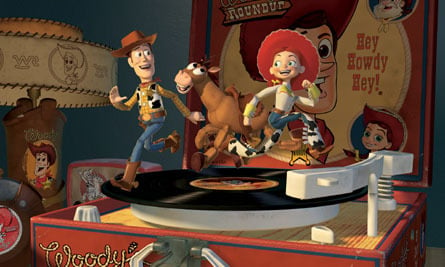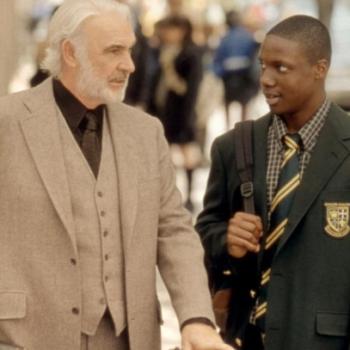
The prospect of immortality, eternal life, or some kind of existence beyond mortal life can be found in most religions. Some variation of the concept is generally promised as a reward for faithful adherents. Everyone wants to live forever, but none of us can really comprehend what that means in practice.
And yet, it’s useful to examine the concept from a metaphorical perspective. And I want to do so through the lens of Pixar’s Toy Story 2.

All of the Toy Story films deal with the theme of permanence vs change one way or another, but I’d argue that it’s the second movie that looks at it most pointedly. This film puts its lead character, Woody, in a position to choose whether he’s going to embrace the fleeting years he has as Andy’s favorite toy or escape to a life where he never has to have his heart broken. (Toy Story 4 tries to do something similar, but much less successfully in my book …)
Early on, Woody’s arm becomes unstitched, and this becomes a token of Woody’s mortality. A physical reminder that Woody won’t be around forever, itself a reminder that one day Woody will be obsolete in Andy’s life. When Woody is kidnaped by a toy collector, he is presented with an alternative: allow himself to be taken to the toy museum in Tokyo and never face the prospect of abandonment.

In this film, immortality is not presented in the context of being exalted, but of hiding from the disappointing parts of mortality. Life behind a glass case will ensure that Woody is physically preserved for eternity, or at least for a very long time. As an icon, he will receive the “love” of millions of kids who admire him. The cost, of course, is the meaningful experiences he can have as a companion to a child who is growing and learning to live and love. It’s because these moments are so precious that the prospect of losing them can feel unbearable.
This fear of abandonment is very powerful. It not only has Woody genuinely consider leaving Andy and company, but it’s also left scars on Jessie, who still aches from being abandoned by her kid, Emily. She has lived through the thing that Woody fears. “You never forget kids like Emily or Andy, but they forget you.”

But spending your life running from pain, or even the threat of pain, is not only impractical, it’s also fruitless. Buzz reminds him as much when he confronts Woody about giving up the possibility of being there for Andy. Woody finds out as much when he decides that he would take a few years with Andy over a lifetime of not being there for any child.
This approach offers a different kind of immortality. It may not keep you suspended in a state of permanence for time and all eternity, but the security he provides Andy shapes him into a healthy adult capable of living a rich inner life. In that way, the love he gives Andy will outlast the years he spends in his toy box, or even Andy’s ability to recall it. You cannot escape time like this behind a glass box.
Toy Story 3 at least allows Andy the opportunity to bless their eventual parting by acknowledging what this company of toys have given him, giving them the grace of gratitude (a gesture that the 4th “Toy Story” film entirely dismantles by implying that Woody can never really provide another kid with the love he gave to Andy. Stupid …)

If I may speculate as to the nature of God for a moment, it’s worth pondering God’s own experience with immortality, lowercase. I think our context for immortality is the sort of glasslike non-existence that places one beyond the reach of pain–the kind of immortality that briefly tempts Woody. But what if God in all his endlessness has himself known this pain of separation? What if this were not some exception to his immortality, but a parallel to it? What if godliness were itself the act of choosing to spend one’s existence in true service? The kind of service that offers nothing in return but the peace of blessing another’s life? What if each of us reach immortality only to find that life eternal is nothing more than life lived for others? Is that not the life Christ preached in his day?
Again, I’m reaching here. But my thoughts have wandered here more than once.













